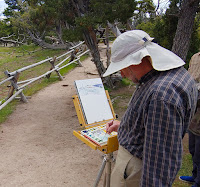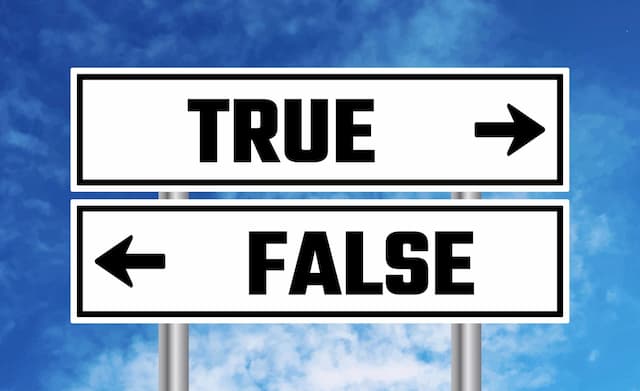Honoring Authority within God’s Big Picture (Part 3):God Adds Texture to Our Portraits with Visions of a Masterpiece
When
we contemplate the canvas of life, I hope we recognize that God is the Master Painter.
He determines the colors, the background, the foreground, the objects, and the
goings on in His big picture. We see in limited frames, but God combines them onto
a single, grand canvas, with the richness of differing perspectives, multiple art forms
and mediums, and expertly woven nuances of light and dark space across and
beyond varied genres and time periods.
God
is the artful Master, and He profoundly captures the details of our interests, talents,
and emotions within a single image. And then another that expresses a new
adventure or a different struggle, and ever-maturing qualities as time elapses.
All that is within our hearts, that which was before and that which is to come,
are deeply impressed in our eyes as He unveils His treasure: each one of us –
each individual, eternal person.
The
Master Painter never overlooks the value of texture and depth. Each portrait
within each frame is painted with deep love for His subject. And with each
subject, His vision is grand. In each of us, He sees a masterpiece.
This is Part 3 of a 3-part series on
honoring our authorities within God’s big picture. In Part 1 and Part 2, we
considered some very difficult aspects of honoring the authority figures God
placed in our lives. As the master painter, He chose them and determined how
they would shape the circumstances we may either enjoy or endure – because honoring
God means honoring our superiors whether we like them or not.
But this doesn’t come naturally and
we don’t always succeed. Sometimes we want to retaliate or buck the system, and
we may actually miss the mark several times throughout the week. We’re human!
So, as we wrap up this series, we will get even more personal. We will consider
the difficult relationships we have with some of our authorities as we fit into David’s shoes that were not always majestic or honorable. And we will rejoice
in the fact that God wants to paint us as His masterpieces.
David faced choices between honor
and self-gratification just like we do today. We can learn from his right
decisions as well as his recovery after his wrong decisions. Here are two more lessons
of honor we can learn when we admire the portrait God painted of David.
1.
The more we trust in God’s brush strokes, the more we let Him direct our steps
God knows us. David wrote that He
designed us before we were even born (Psalm 139:13-16). The Master Painter
envisioned how He would paint us onto the canvas and He followed through with
deep love for us. Read what David wrote next:
How precious to me are your
thoughts, God!
How vast is the sum of them!
Were I to count them,
they would outnumber the grains of sand—
when I awake, I am still with you.
Psalm 139:17-18
If you’ve been following this series, you know that God painted a great big picture into which He
painted our lives, our circumstances, and our difficult situations. He knows
about our struggle to honor Him. He also painted our ever-maturing character –
our hearts that continue to grow in affection toward Him and His values
(Hebrews 12:1-2).
As we grow closer to Him and
understand our life purpose, we want to please Him and step further along the
road He paved for us. But as we journey, we must be careful to follow His lead
and not trudge ahead without Him. So, when we come upon opportunities that seem
to advance us along our path, we need to discern what would honor (or dishonor)
God. And when we are faced with an opportunity to escape the authority of
a superior, or worse, to dismantle their authority, we cannot proceed if it
means we sin against God.
This gets especially hard when people
around us support a decision that wouldn’t honor God. Sometimes faulty affirmation
even comes from godly friends and family members. They say things like, “Don’t
you think God wants something better for you?,” or, “I wouldn’t blame you if
you…” Some situations are so bad that taking a step against a superior seems
to be the only choice we have. In those situations, pause. Earnestly seek God’s
direction. As we have seen from David’s example, most of the time, the right
decision is to endure.
God-honoring decisions are often
unpopular, but wrong decisions dishonor God. Honking in anger at a police officer for parking and
exiting his vehicle in my lane of traffic, as I have done, is wrong. Rebelling
against our parents is wrong, no matter how unfair our lives may be. Emailing
or posting derogatory remarks on social media about our teachers or bosses or
government agencies is unacceptable, even if they drew first blood. Defaming
and slandering the name of our President, even if we think he’s detestable, is
the wrong choice.
(By the way, respecting those who
don’t seem to deserve it is not the same as defending them. We honor them for
their roles in our lives and we honor God for His sovereign choice to appoint
them.)
When King Saul tried to kill David,
David slipped out then returned to do his job (1 Samuel 18:10-11, 19:9-10).
When he sent David to battle and assigned details that almost certainly meant
he would be killed, David went to battle (1 Samuel 18:11-30). And when David
had two opportunities to kill Saul (1 Samuel 24 and 26), he did not take
advantage of them. Why? Because God chose Saul to be the king. In fact, after
David chose not to kill Saul while he slept, he reprimanded Saul’s own men for
failing to protect their king. And after Saul died, David commanded that no one
harm Saul’s family members and he honored them while he lived.
Did David consider killing Saul? Yes, he did. In 1 Samuel 24, his men nearly convinced him to
do so. He could have finally stopped running, finally stopped hiding, and
finally worn the crown as God previously ordained. His men reminded him of what
God predicted, “I’m going to hand your enemy over to you” (1 Samuel 24:4).
All the pieces were in place. Everything
was coming together, but to follow through would have been to sin against God.
He would have defied God’s sovereign authority, and that was
unthinkable to him (1 Samuel 24:6). Why? Because God painted Saul as king.
So, when we trust God’s brush
strokes, we do what pleases God, even when everyone around us would totally
understand – even when mildly dishonoring God would be perfectly acceptable
by onlookers.
2. The more we treasure all of God’s
painting, the more we want to correct ourselves
 We probably will make wrong choices
We probably will make wrong choices
sometimes.
Then what?
David fell short…in a big way. Of
course, as King, he was in charge, but he was under an even greater authority. David
knew his sin was against God, and reconciliation and recovery were accomplished
in one simple step of repentance. He would not walk away from his relationship
with God. It meant too much.
David quickly disposed of the
garbage in his life and got back on track.
Imagine the portraits God wants to
paint of us. How is His grand picture affected by our clenched fists and exacting eyes? We can change the mood of the scene with just a few twitches of our muscles.
Haven’t we Christians done that too much already? Does the world see our anger or
our love? Are they turned off by our arrogance or attracted to our humility and
mutual respect for people?
We know David was not perfect. In
fact, he is known for a severely egregious compound sin (see 2 Samuel 11):
1) He watched Bathsheba as she
bathed.
2) He used his position to summon
her.
3) He slept with her (and she got
pregnant in the process).
4) He tried to cover his sin by
attempting to have her husband sleep with her ASAP.
5) Since her husband didn’t sleep
with her, he sent her husband to the front battle lines to have him killed so
that he could take Bathsheba as his wife and thereby not appear guilty of any
sin.
That’s all pretty bad, but here’s
the good part of this story. When David was confronted by God’s messenger about
his sin, David confessed and repented. He said, “I have sinned against
the LORD” (2 Samuel 12:13). He previously concealed his sin, but that
doesn’t discount his sincerity.
David acknowledged his
responsibility to God. He didn’t try to justify or diminish his actions
to God’s messenger. He confirmed that a sin against man is a sin against God.
Incidentally, the prodigal son also acknowledged the same truth. He said,
“Father, I have sinned against heaven and you” (Luke 15:21).
Have we slandered those who impose rules we don’t agree
with, or who simply do things that just should not be?
Does our hate lead us to act in ways that tear down fellow
men, women, and children?
Do we hurt them emotionally, physically, financially?
God expects us to honor others. If
we have broken down a relationship due to our lack of respect, we can’t leave
it at that. Make amends, somehow.
Our circumstances do not give us
permission to disregard God’s command and the fact that we reflect Him in all
we say and do. We need to confess our sin against God. He is faithful to
forgive us and cleanse us (1 John 1:9).
A sin against fellow human beings is a sin against God.
Disrespect for authorities is disrespect for God.
Like Part 1 and Part 2, this post speaks
just as much about our respect for our equals and our subordinates as it does
about our respect for our superiors. Respect is respect, regardless of relation
or interaction. Disrespect is disrespect. Either way, in the
process, we reflect our attitude toward God. The way we treat others is the way
we treat God.
David was a man after God’s own
heart (Acts 13:21-22). That’s why he was offended by the taunting of the
Philistines and their giant Goliath, and that’s why he allowed God to correct
his wrongfulness. God used David’s humility and self-sacrifice to paint a beautiful
portrait at the forefront of His big picture. In David, God painted a
masterpiece, and He wants to do the same in us. He cares deeply for us.
If you have questions about honor and
our authorities, or if you want to know more about living for Jesus and what it
means to be a child of God, please email me at authordlv@att.net.
Read more blog posts here.
THE
HOLY BIBLE, NEW INTERNATIONAL VERSION®, NIV® Copyright © 1973, 1978, 1984, 2011
by Biblica, Inc.® Used by permission. All rights reserved worldwide.












